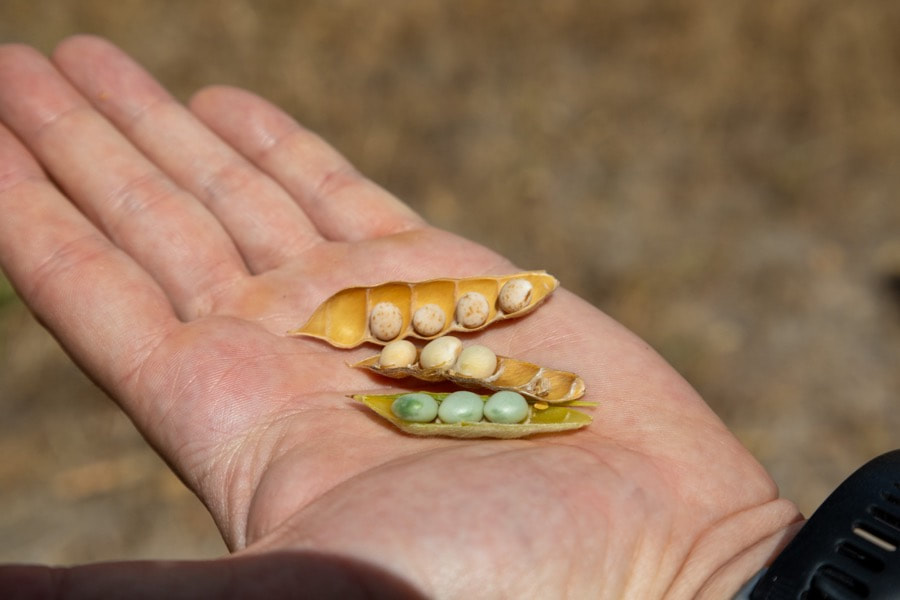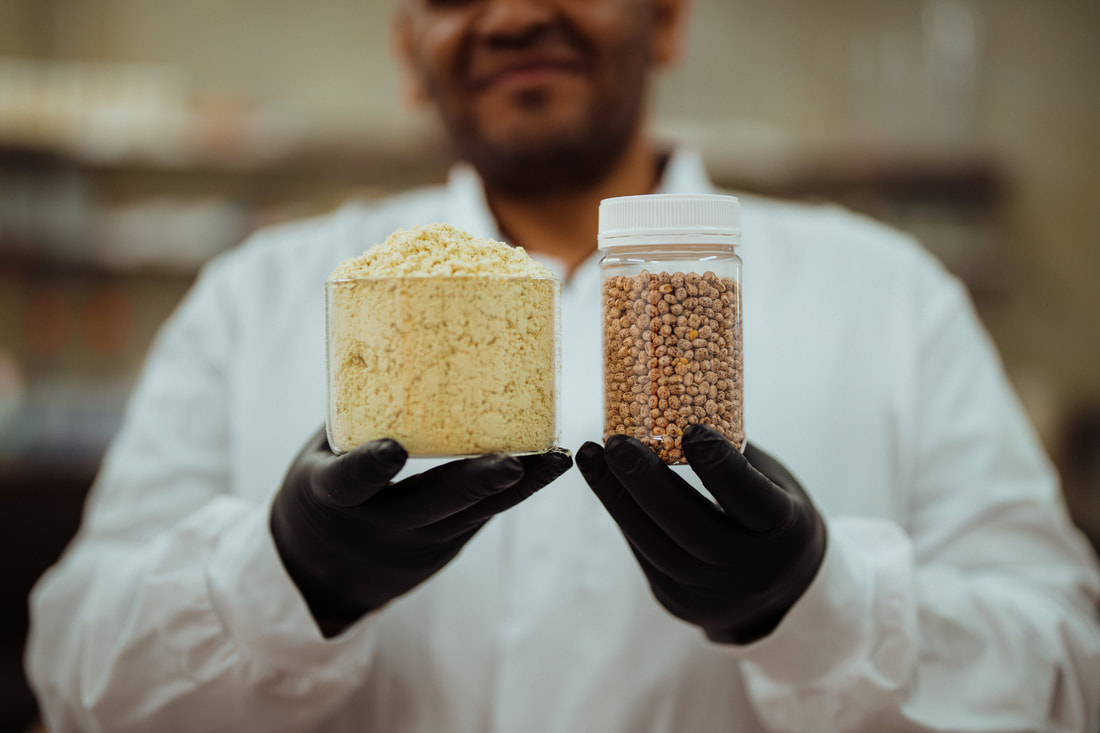World First: Wide Open Agriculture Creates Buntine Protein® from Lupins
- The UN global event World Pulses Day held annually on 10 February recognises the importance of pulses as a global food. Pulses include lupins, a significant crop for the Australian economy.
- Western Australia grows 85 percent of the world’s lupins
- Derived from lupins, Buntine Protein® is an industry leading plant protein product developed by Wide Open Agriculture (WOA) in conjunction with Curtin University (WA); WOA holds the Global Patent for the process to make Buntine Protein®
- Lupins have same level of protein as soy, without the environmental impacts required to grow soy, or the health impacts of soy (a hormone disruptor)
- Lupins are used as a rotation crop by farmers because they add nitrogen into soils, negating the need for fertilisers
- Buntine Protein® is tasteless, dissolvable and leaves a similar creamy mouthful to dairy, giving huge applications for vegan / plant-based foods such as adding to oat milk to boost protein levels
Wide Open Agriculture (ASX: WOA), Australia’s leading regenerative food and farming company celebrates UN World Pulses Day on 10 February, highlighting lupins as the next global superfood.
Lupins have protein levels that rival soy, but unlike soy, growing lupins is good for the planet because lupins add nitrogen back into the soil, require very little water to grow and thrive in hot, dry conditions without the need for any chemical fertilisers.
Western Australia grows 85 percent of the world’s lupins, and thanks to technology developed by WOA with Curtin University, the protein from lupins is now able to be successfully extracted and developed into an ingredient ready to be added to food products to boost protein levels.
Registered as Buntine Protein®, the lupin protein powder is tasteless, dissolvable and leaves a similar creamy mouthful to dairy, giving it huge applications for the vegan and plant-based foods industry.
WOA CEO Jay Albany said that global interest in Buntine Protein® is growing and sees lupins as a potentially lucrative crop for Australian farmers.
“We’ve run successful trials adding Buntine Protein to Dirty Clean Food Oat Milk, which not only makes it creamy but it boosts protein levels to that of dairy milk,” Mr Albany said.
“Butine Protein has endless applications – it can be added to plant-based products such as milk cheese, yoghurt, you can bake with it to make high-protein cookies, breads, crackers, cakes and more.”
Although lupins have been consumed in Europe for hundreds of years, in Australia they have been used primarily as a rotation crop for its soil improvement properties and as stock feed.
In late 2023, WOA acquired commercial manufacturing assets in Germany, and has recently started to produce Buntine Protein® in Germany ready for commercial sales.
WOA Germany has also partnered with the UK Ingå Group, whereby Ingå will market and sell WOA’s lupin based protein products, including Buntine Protein®, across Europe. WOA also has a network of other distributors across the globe.
The byproduct of producing Buntine Protein® is fibre and WOA is currently looking at markets for the fibre to make the process completely waste-free.
Wide Open Agriculture (WOA) was formed to reinvent the way the world grows, thinks about, and buys food. With the current food system accounting for 34 percent of carbon emissions, making improvements in the food system is a key global priority, and lupins can play a key part in this.
The future for WA lupins is exciting with new technology developed that will help boost protein in foods and in turn help feed and nourish the world’s growing population, while also being good for the environment.
That’s worth celebrating on World Pulses Day.
For more information, visit wideopenagriculture.com.au




 RSS Feed
RSS Feed
